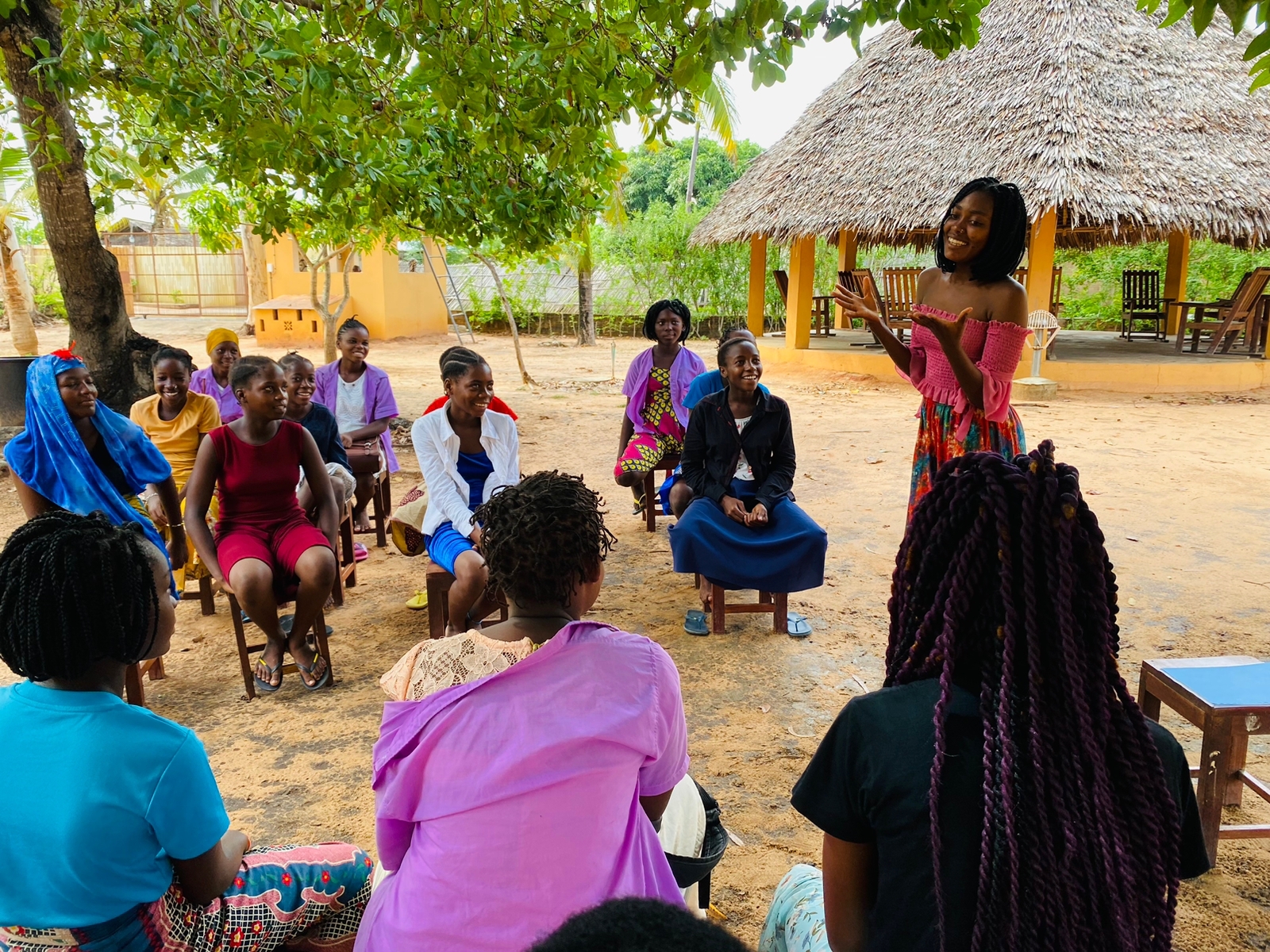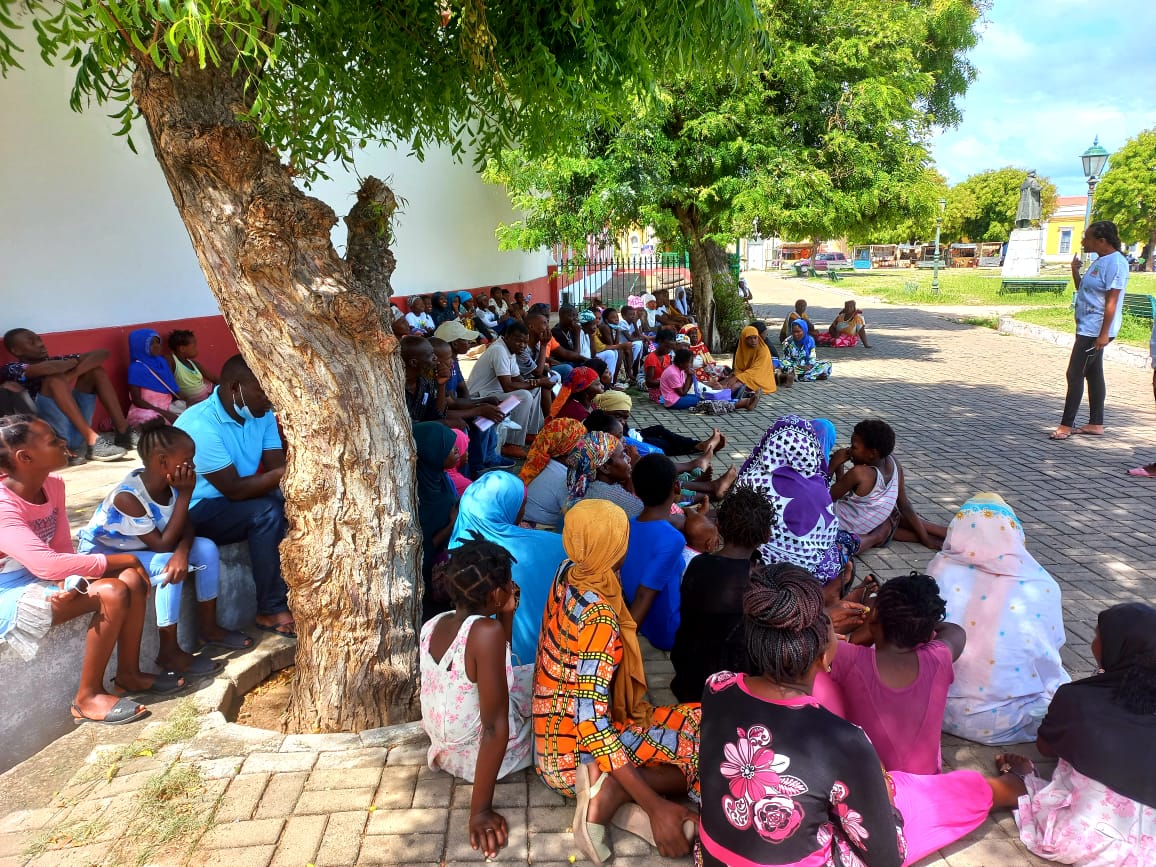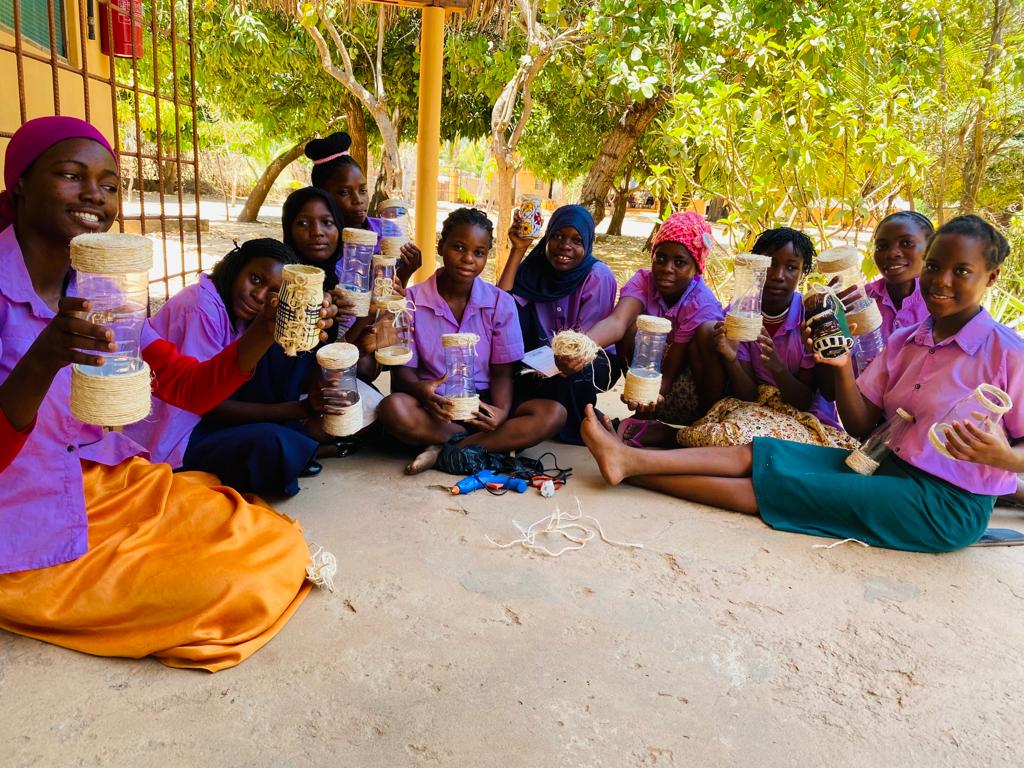
Alumna Fights to Eradicate Child Marriage & Trafficking of Young Women and Girls in Mozambique
A Surge in Child Protection in Northern Mozambique
ISLAND OF MOZAMBIQUE: THE AWAKEN (DESPERTAR) PROGRAM
The “Awaken” (Despertar) Program, led by the “Semillas de Esperanza” Foundation, is dedicated to protecting children’s rights within the cultural landscape of the Island of Mozambique. This foundation serves as a guiding light by addressing the urgent issue of child marriage that is deeply ingrained in the cultural fabric and heightened by economic hardships and the normalized habits of child abuse. The Awaken Program has successfully dismantled the barriers that once silenced women, particularly in cases of domestic violence, child labor, and abuse.
 In northern Mozambique, there is a growing movement, predominately led by women, to establish a culture of child protection in their communities through social awareness campaigns and initiatives. It is the women of these communities that have emerged as key figures who stand to defend their own right and all children’s right to education and the chance to fully develop into adults before being forced into child marriages or the labor force. These empowering efforts have caused a vast shift in attitudes towards gender equality and women’s leadership.
In northern Mozambique, there is a growing movement, predominately led by women, to establish a culture of child protection in their communities through social awareness campaigns and initiatives. It is the women of these communities that have emerged as key figures who stand to defend their own right and all children’s right to education and the chance to fully develop into adults before being forced into child marriages or the labor force. These empowering efforts have caused a vast shift in attitudes towards gender equality and women’s leadership.
The program's most pivotal moments took place on International Day of the Girl Child, where an 11-year-old devout Muslim girl delivered an inspirational speech, affirming her right to education, her aspirations of attaining her own dreams, and her rejection of premature marriage. Her bold declaration symbolized a collective awakening to the rights of girls in the community.
“October 11th, I’ve come to make my rights clear! Mom and Dad, say NO to child marriage, because one day I dream of being president! So many girls get married as children, which hinders them from being able to fulfill their dreams.”
Due to the unwavering commitment of the Awaken Program, the promise of a bright future for girls on the Island of Mozambique becomes increasingly tangible. Through breaking the cycle of oppression, the program opens new doors for girls, enforcing the transformative nature of education and advocacy.
PEMBA, MOZAMBIQUE: ABUSE PREVENTION AND A CULTURE THAT PRIORITIZES PROTECTING THE VULNERABLE
Perched along the coastline of the Province of Cabo Delgado, the port town of Pemba has been struck by violent acts of terrorism and continues to be plagued by social and political instability. Families battle economic hardship, which means they cannot offer their children basic civil liberties such as food, education, healthcare, and protection. Due to the community’s difficulty to uphold social norms and guarantee rights, child dignity and freedoms which should be granted to all children are consistently disregarded.
Growing up in  these precarious economic conditions inevitably leads to violence, generational divides, and a lack of dialogue, inhibiting individual expression. Despite these challenges, there still remains a beacon of hope: the unwavering commitment of various centers and programs offered by the “Semillas de Esperanza” Foundation. With the establishment of safe spaces for protection, individuals now have a safe haven in the face of oppression.
these precarious economic conditions inevitably leads to violence, generational divides, and a lack of dialogue, inhibiting individual expression. Despite these challenges, there still remains a beacon of hope: the unwavering commitment of various centers and programs offered by the “Semillas de Esperanza” Foundation. With the establishment of safe spaces for protection, individuals now have a safe haven in the face of oppression.
Through slow and steady measures, the foundation seeks to grant children the opportunity to have a voice. Social and emotional learning activities empower children to navigate their emotions and relationships, while simultaneously equipping them with responsible decision-making skills. Prevention strategies against various forms of child violence, such as sexual and psychological abuse, are illuminated in an effort to combat these prevalent issues. By raising awareness about violence toward children, children themselves and their communities learn ways to better safeguard their dignity and well-being. For example, workshops targeting children ages 7-14 were implemented to help them understand the motto: “My body, my rules.” The “Semillas de Esperanza” Foundation’s work extends beyond individual interventions, aiming to shift community attitudes towards child protection.
The foundation continues to provide a foundational support system for minors and their families, encouraging the creation of safe spaces conducive to personal growth and achievement. By conducting social awareness campaigns that stress the importance of making responsible life choices, the foundation addresses the need to prevent and combat early pregnancy and child marriage. By shedding light on the gravity of this issue, prevention efforts have the power to influence a cultural environment that stands to safeguard the welfare of its children. As the foundation persists in advocating for the dignity of children, there is an undercurrent that is bringing the community toward a shift in mindset.
“The work of [abuse] prevention, despite being less detectable [than intervention in cases of abuse], holds great significance. Its gradual impact has the power to transform and influence the behavioral habits of families or even entire communities. This slow transformation permeates the culture itself, bringing to life new roots and fostering deeper awareness of child welfare. We hope that child protection will soon become a “culture within the culture” in northern Mozambique.” - Teresa de Jesús Ferrero Vaquero




